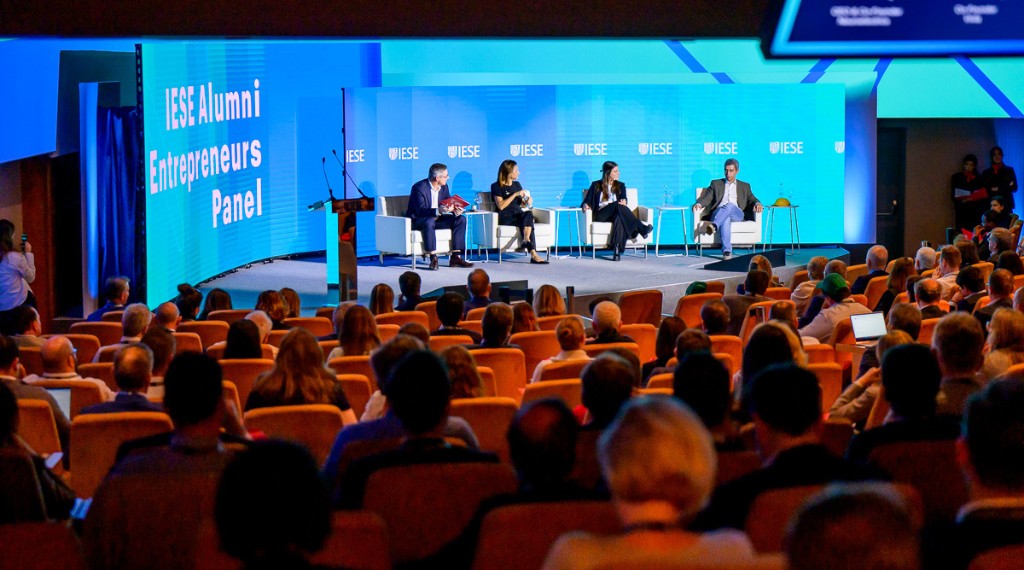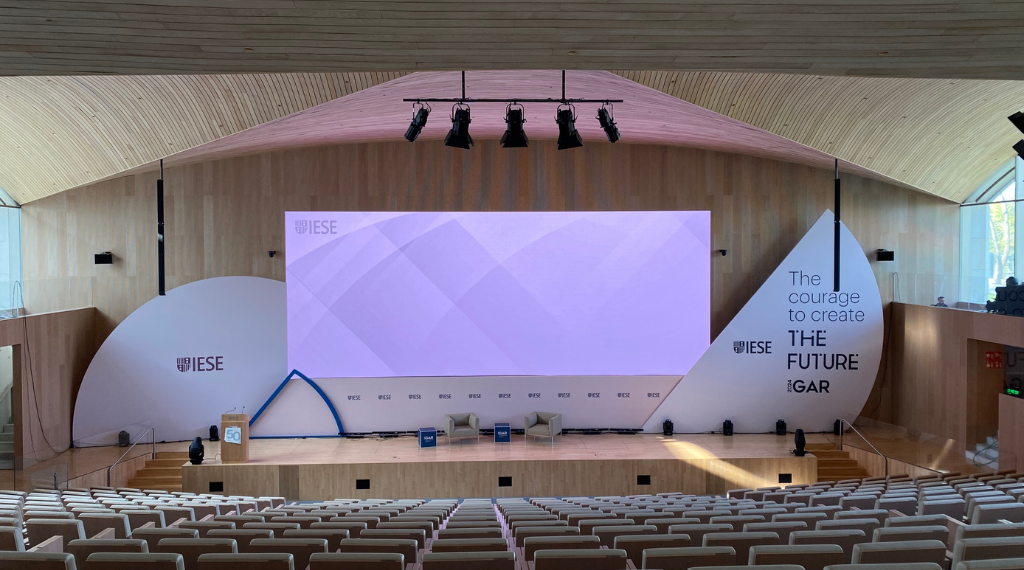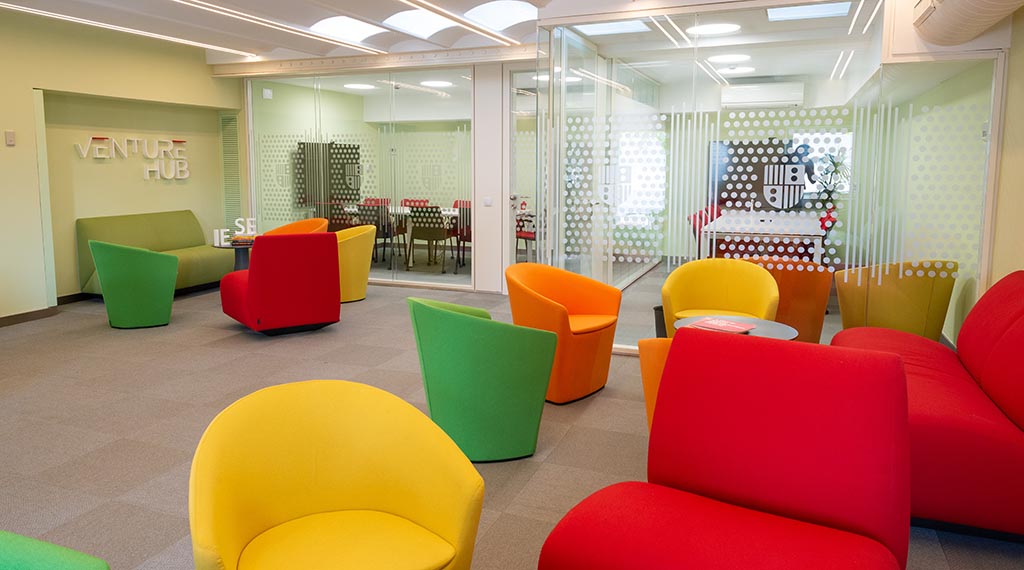Stories
Debunking myths about entrepreneurship at IESE's Global Alumni Reunion 2023
Barcelona event focuses on human-centered leadership and innovation
November 20, 2023

IESE’s Global Alumni Reunion 2023 drew to a close this weekend, capping a three-day event focused on entrepreneurship, innovation and people-focused leadership.
This year’s event, which was held on IESE’s Barcelona campus, introduced a new interactive workshop that allowed 1,200 in-person attendees to expand their networks and discuss topics of shared interest, including business innovation, digital transformation, sustainability and AI.
During the sessions, experts and entrepreneurs, known for their resilience, shared their views on how to turn problems into opportunities while maintaining a humane culture in their organizations.
Entrepreneurship can be learned
“Entrepreneurship, at root, is the process of creating something from nothing, which sounds magical, but there’s science and research behind it,” said Prof. Christoph Zott, who alongside Prof. Anneloes Raes served as academic director of the event. That research busts three myths: that entrepreneurs are born and not made, that opportunities are waiting to be discovered (instead, they must be created) and that it’s all a matter of luck.
A team sport
A recurring theme of the Global Alumni Reunion, which again welcomed a deep roster of prominent businesspeople as guest speakers, was that entrepreneurs cannot thrive on their own. “Culture will kill strategy every time, so you have to cultivate the right culture,” said Steve Bandrowczak, CEO of Xerox.
Speaking of how to make a difference through your work, Anusha Thavarajah, Regional CEO of Allianz Asia Pacific, said one must “do the right thing, in the right way, with the right people. And this applies to all stakeholders: investors, customers and employees.”
“No one can solve these problems alone,” said Sylvie Nicol, Executive VP of HR, Infrastructure & Sustainability at Henkel. “Work with one another. Convince each other. And view sustainability as closely intertwined with the business, rather than a separate entity.”
Hubertus von Baumbach, chairman and CEO of Boehringer Ingelheim, agreed, and spoke of trying to reduce power distance in his organization. “I try to create an environment where people feel respected,” he said. “Hierarchy doesn’t help those at the top have the ability to hear from those who make the difference.”
Reframing mindsets
Profs. Raes and Zott said that seeing opportunities where others see problems and never giving up were two pillars of entrepreneurship. That’s especially true now, as technology evolves at an ever-faster rate and grave environmental and geopolitical problems threaten to undermine business leaders.
“Impact is when you turn a problem into a profit, and to do that you need to bring everyone’s capabilities together,” said Abubakar Suleiman (GCEO-22), the managing director and CEO of Sterling Bank.
Chetna Gala Sinha, chair of Mann Deshi Bank and Foundation in India, founded the organization to help women who couldn’t get traditional bank accounts and were often illiterate. Offering advice to fellow entrepreneurs, she said, “if you are serious about investment, be prepared to make sacrifices. Other business leaders may deal in millions or billions in capital, but at Mann Deshi Bank, our courage is our capital.”
Time to pause
Introspection and humility were among the traits Raes cited as critical to being a successful entrepreneur. “It starts with self-awareness,” she said. Fittingly, then, each day of the GAR ended with some time for reflection that allowed attendees to think about what they would take away from the event and put into practice.
It was a practice aligned with those of David Katz, founder and chairman of The Plastic Blank.
“We need to get away from egocentric thinking, that by buying and consuming more we make meaning,” he said. “What we need are values-based organizations, designed to serve others. The next generation demands it: they want purpose.”
As the IESE Alumni Association President Alejandro Beltran reminded everyone during his address, the IESE GAR is “not only a gathering but a call to action and a commitment to do better.”


